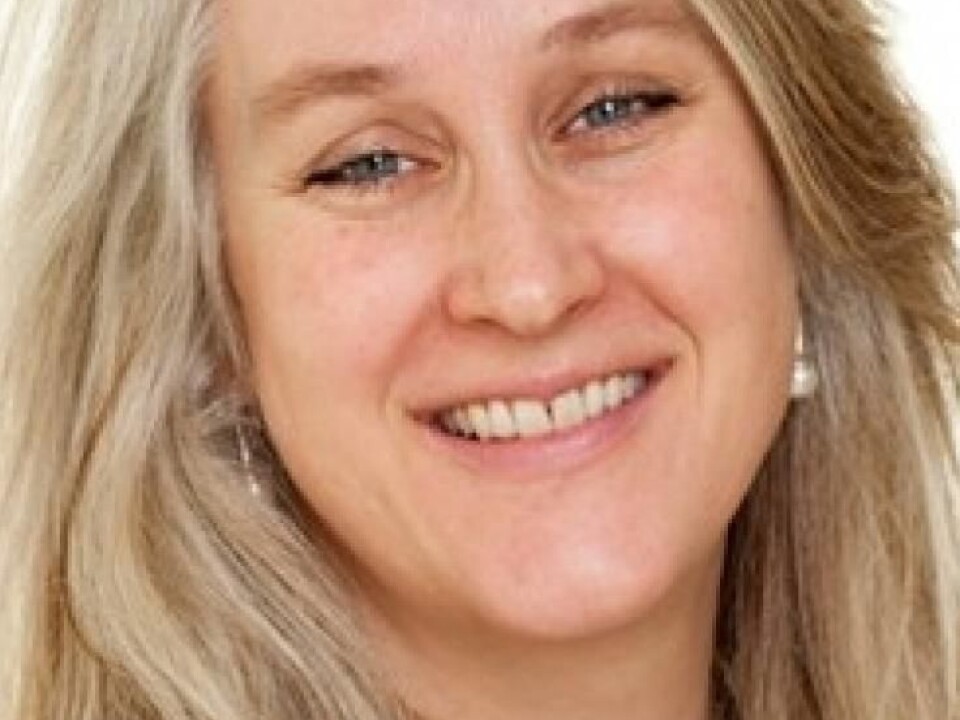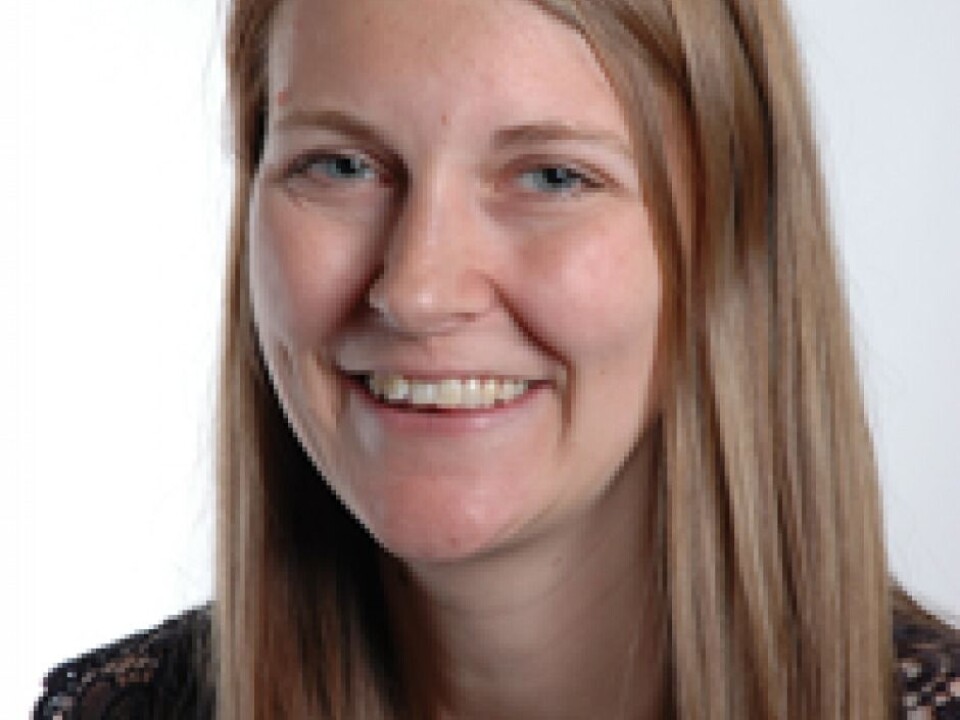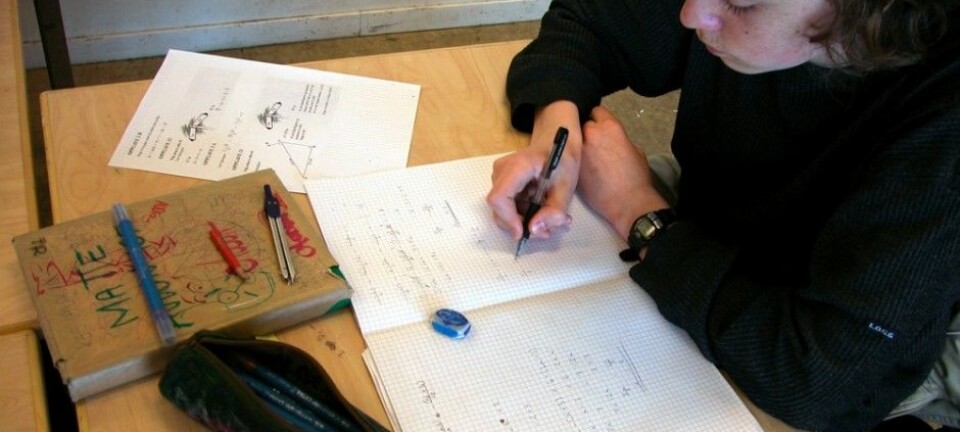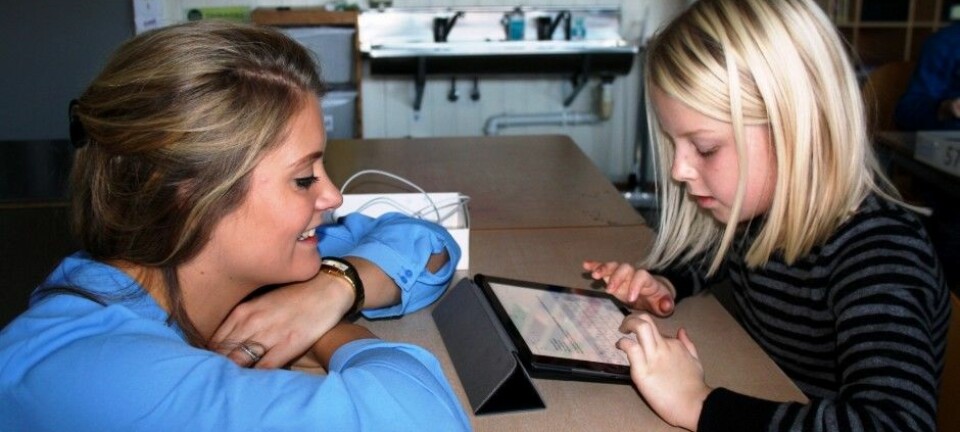
Who teaches scholars how to write?
It’s assumed that academic researchers know how to write. The reality is different, but no one wants to talk about it.
Denne artikkelen er over ti år gammel og kan inneholde utdatert informasjon.
Most people in academia communicate their findings to the outside world through writing. But often their thoughts grind to a halt in front of the keyboard. Many Norwegian scholars struggle to create a coherent text.
“The road from idea to text is more tortuous than most academics will admit,” says Lynn Nygaard. Her job is to help people with writing. In addition, she is writing a doctoral thesis on the topic.
People in academia should be able to write. Period.
It’s one thing is to be clear in your mind. It’s another thing to get clear thoughts down on paper.
Nygaard worked as a freelance translator and proofreader for several years and encountered only the academic texts, not the people who wrote them. Often she was exasperated with how messy and incomprehensible many of the texts were.

When Nygaard later began working at a research institute, it changed her view on both academic people and academic writing.
Nygaard said, “I got to know the people behind the words and heard what they said. They told a much more exciting story about their research than what they wrote about in their articles. She often ended up saying, "This is interesting. Why don’t you write this? "
This led to her interest in the writing process, the path from idea to text. Now, in addition to her part-time work on her doctorate in education through University College London, she has taken on a new job as writing tutor at the Peace Research Institute Oslo.
Nygaard confirms that in some environments it is almost taboo to talk about writing difficulties. Researchers by definition are expected to know how to write. But she meets many people who struggle with it.
A vicious cycle ensues

Humanities scholars often struggle the most, in Nygaard’s experience. Social scientists and natural scientists tend to collaborate more with others and have co-authors.
Nygaard finds that the more alone people are in their writing process, the less opportunity they have to try out ideas on others. This can yield worse results, she says.
Especially scholars who think of themselves as good writers set high standards for themselves, and they are reluctant to hand over a text that is not perfect.
Many humanists and social scientists fall into this category. They rework and polish the text forever.
When you keep working and reworking the language, the sentence can go from good to worse. And this process becomes a vicious cycle.
Importance of feedback
“Many people find it embarrassing to share unfinished texts. And in many places there is no culture for doing it. But my experience is that texts don’t become good until they’re shared with others - several times. When you get feedback, you can go back and rewrite. Do it again and again,” Nygaard says.
Without feedback from others, it becomes almost impossible to find the right balance between too much polishing and necessary editing.
And, she adds, if the management at research institutions doesn’t understand this about the writing process, but just pushes to get out publications, the situation becomes worse.
Institutions are responsible for writing
The institutions have a responsibility for how well students, doctoral candidates and researchers write. They should create a culture of writing, says Nygaard.
“Writing must be taken more seriously. More people need to recognize that this isn’t something that happens by itself. The infrastructure should enable people in academia to have regularly scheduled time and quiet to write - without interruptions from email or students.
And it should go without saying that the institutions have employees who help with academic writing, she believes. As far as Nygaard knows, PRIO is the only research group in Norway that has done this.
Defining what is “good enough”
Many doctoral candidates and researchers feel pressure to produce work that is unique, brilliant and groundbreaking. It isn’t enough to write something that's just okay.
“There are also major differences in how difficult the writing process actually is, depending on the field and topic you’re researching,” says Nygaard.
Some researchers, especially social scientists, often go out alone on fieldwork. Maybe they have to deal with multiple languages if they do interviews. Then they have to analyse their data on their own. This requires more time than if you are handed a dataset to analyse together with a research team. Other researchers know what they have to do even before they get started, and they do it with others.
Nygaard recommends developing a greater consensus about what is good enough, especially in the humanities.
In her experience, almost everyone who starts a new research project thinks it's really exciting – until they get about halfway through the process. At which point their confidence plummets and they feel “this is rubbish, it’s been thought of before, I don’t have anything new to contribute”.
Nygaard says two things must happen in this phase. First, researchers need to understand that almost everyone goes through this phase. Feeling that way has nothing to do with the quality of your work. When you’re so deep in your research that everything seems familiar, it may feel like you’re not writing anything interesting. This is part of being a researcher.
Second, she says, “It’s tough to get out of this phase alone. So it’s important to talk about writing with others - maybe a coach, but it can just as well be a colleague you meet during lunch.”
Talk to people
Katrine Vellesen Løken, a researcher at the University of Bergen (UiB), is the youngest woman to become a professor of economics in Norway.
She also keeps up a remarkably high publication rate, primarily in large, reputable journals in English. This is what one must aim for, says Løken, for research to reach an international audience.
As the head of writing courses for doctoral students at UiB, she also sees many academics struggling with writer's block. But Løken believes that this may stem from a lack of ideas.
She thinks social isolation is often the cause. “It's rare that I come up with an idea for an article on my own. I travel to conferences and talk with people. My experience is that it’s important to collaborate with others,” Løken says.
It's also hard work. It may take five years for Løken to go from idea to published article.
“If I were to give just one good tip, it would be to look at what others have done. Of course you can’t plagiarize others' research, but you can mimic experienced research writing before you try it on your own,” she suggests.
-------------------------------------
Read the Norwegian version of this article at forskning.no


































